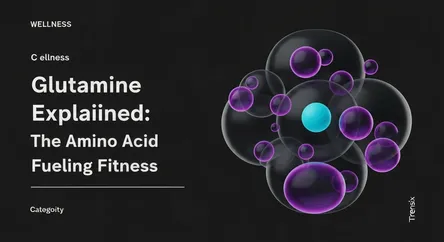Wellness
Glutamine Explained: The Amino Acid Fueling Fitness

Discover glutamine, the popular amino acid supplement known for boosting muscle recovery, supporting immune function, and promoting gut health.
What is it?
Glutamine is the most abundant amino acid in the human body and serves as a fundamental building block for protein. It is considered a "conditionally essential" amino acid. This means that while your body can typically produce enough on its own, during periods of intense stress—such as critical illness, injury, or strenuous exercise—the demand for glutamine increases, and supplementation may become beneficial. It plays a vital role in numerous bodily functions, particularly in supporting the immune system and maintaining intestinal health.
Why is it trending?
The popularity of glutamine supplements has surged, largely driven by the growing sports nutrition market. Athletes and fitness enthusiasts are increasingly using it to enhance performance, reduce muscle soreness, and accelerate recovery after intense workouts. Beyond the gym, there is rising awareness among the general public about its benefits for digestive health and immune support. Social media trends on platforms like TikTok have also amplified its visibility, with users sharing personal experiences related to improved gut health and faster muscle repair.
How does it affect people?
For most healthy adults, a balanced diet provides sufficient glutamine. However, supplementation can offer specific benefits. In athletes, some studies show it may decrease muscle soreness and improve recovery. It's a key energy source for intestinal and immune cells, helping to maintain a healthy gut barrier. In clinical settings, glutamine has been shown to reduce infections and shorten hospital stays for critically ill or post-surgery patients. While generally considered safe with mild side effects like bloating, it's not recommended for individuals with kidney or liver disease.